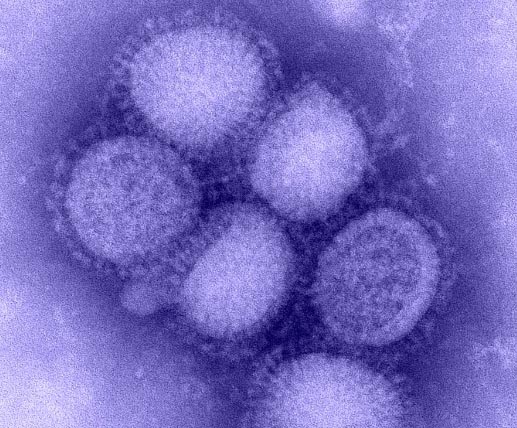Chinese study finds that Influenza virus exploits host protein PEX19 to boost replication
Nikhil Prasad Fact checked by:Thailand Medical News Team Aug 17, 2024 1 year, 4 months, 2 weeks, 2 days, 19 hours, 6 minutes ago
Influenza News: Understanding the Complex Interaction Between Influenza A Virus and PEX19
Chinese researchers from the College of Veterinary Medicine at China Agricultural University, the Harbin Veterinary Research Institute, and Shanxi Agricultural University have unveiled a significant finding in the ongoing battle against the influenza A virus (IAV). This
Influenza News report sheds light on how the virus manipulates a specific host protein, PEX19, to enhance its replication, thereby evading the body's immune response and leading to more severe infections.
 Chinese study finds that Influenza virus exploits host protein PEX19 to boost replication
Chinese study finds that Influenza virus exploits host protein PEX19 to boost replication
The study focused on the interaction between the influenza A virus's M2 protein and the host protein PEX19. The researchers discovered that the M2 protein, a critical component of the virus, interacts with PEX19 in a way that disrupts the normal function of peroxisomes, which are essential for various cellular processes, including antiviral responses. This interaction ultimately facilitates the replication of the virus, making it more difficult for the body to fight off the infection.
What is PEX19, and Why is it Important?
PEX19 is a protein involved in the early stages of peroxisome biogenesis. Peroxisomes are small, membrane-bound organelles that play a crucial role in maintaining cellular health by controlling the levels of reactive oxygen species (ROS) and facilitating the immune response to viral infections. The proper function of peroxisomes is essential for the body's ability to combat pathogens, including viruses like the influenza A virus.
The study revealed that PEX19 interacts with the cytoplasmic tail region of the influenza A virus M2 protein. This interaction was shown to inhibit the growth of the virus, indicating that PEX19 has a natural antiviral role. However, the virus has evolved mechanisms to counteract this effect, thereby enhancing its ability to replicate and spread.
The Mechanism Behind PEX19 and M2 Interaction
The researchers employed various techniques, including yeast two-hybrid screening, co-immunoprecipitation, and confocal microscopy, to unravel the details of how PEX19 interacts with the M2 protein. They found that the C-terminal region of PEX19 binds to the cytoplasmic tail domain of the M2 protein. This binding disrupts the normal function of peroxisomes, leading to a reduction in their number and compromising the cell's ability to manage ROS levels.
The study also showed that when PEX19 is knocked down or its expression is reduced, there is an increase in the replication of the influenza A virus.
Conversely, overexpression of PEX19 resulted in a significant decrease in viral replication, underscoring the protein's potential as a target for antiviral therapies.
How Does the Virus Benefit from This Interaction?
The influenza A virus exploits this interaction to crea
te an environment that is more conducive to its replication. By reducing the number of peroxisomes, the virus increases the levels of ROS in the cell, which in turn causes cellular damage and weakens the immune response. This damage provides a more favorable condition for the virus to replicate and spread within the host.
Moreover, the interaction between PEX19 and the M2 protein was found to interfere with the binding of PEX19 to other peroxisome-associated proteins, such as PEX14 and PMP24. This disruption further impairs the peroxisome's ability to function properly, exacerbating the effects of the viral infection.
Implications for Future Research and Treatment
The findings of this study have significant implications for the development of new antiviral therapies. Targeting the interaction between PEX19 and the M2 protein could provide a new strategy for combating influenza A virus infections. By preventing the virus from hijacking PEX19, it may be possible to enhance the body's natural antiviral response and reduce the severity of infections.
Additionally, understanding the role of peroxisomes in the immune response to viral infections opens up new avenues for research into other viruses that may exploit similar mechanisms. This study provides a foundation for further investigations into the interactions between viral proteins and host cellular machinery.
Conclusion
In conclusion, this study highlights the intricate ways in which the influenza A virus manipulates host cellular processes to enhance its replication and evade the immune system. The discovery of the interaction between the M2 protein and PEX19 offers valuable insights into the virus's life cycle and provides a potential target for new antiviral therapies. As we continue to learn more about the complex relationship between viruses and their hosts, such findings will be crucial in developing more effective strategies to combat viral infections.
The study findings were published in the peer-reviewed journal: Viruses.
https://www.mdpi.com/1999-4915/16/8/1309
For the latest
Influenza News, keep on logging to Thailand Medical News.
Read Also:
https://www.thailandmedical.news/news/small-protein-pesp-found-to-boost-influenza-virus-replication-by-enhancing-autophagy
https://www.thailandmedical.news/news/inhibiting-ran-protein-could-be-key-to-stopping-influenza-a-virus
